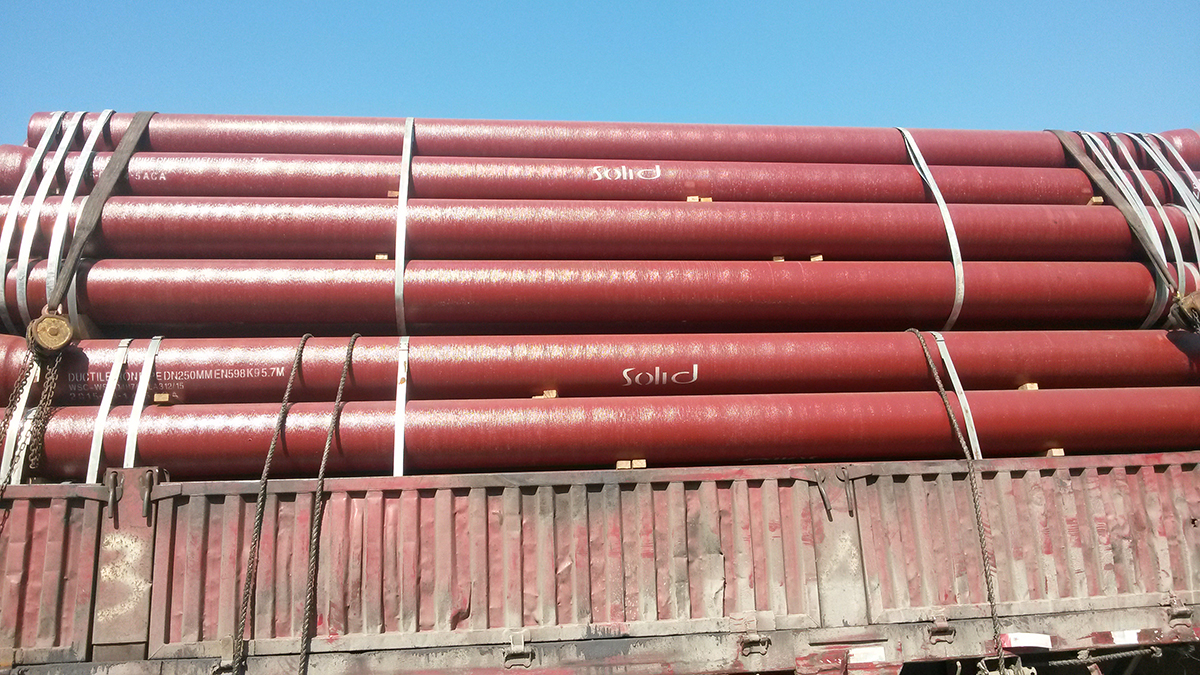Study on Mechanical Properties and Corrosion Resistance of ISO2531 Ductile Iron Pipes
Sep. 28, 2025
The ISO2531 standard sets strict specifications for the mechanical properties and corrosion resistance of ductile iron pipes, ensuring their reliability in water supply and drainage, industrial transportation, and other scenarios.
In terms of mechanical properties, the standard specifies that ductile iron pipes must have a minimum tensile strength of 420 MPa, a yield strength of at least 300 MPa, and an elongation of at least 10%. These properties are achieved through the optimization of the cast iron matrix, facilitated by the presence of spheroidal graphite. This type of graphite is uniformly distributed in a spherical shape, which reduces the brittle defects commonly found in traditional gray cast iron. As a result, ductile iron pipes demonstrate both high strength and good toughness. This enables them to withstand soil pressure, stresses caused by thermal expansion and contraction, and sudden impact loads. These pipes are well-suited for underground installations and complex geological environments.
The corrosion resistance is achieved through material optimization and anti-corrosion treatments. Ductile iron itself contains alloying elements such as silicon and chromium, which form a passive film to enhance corrosion resistance. The standard mandates that the outer wall be coated with a zinc layer plus asphalt or epoxy resin. The zinc layer thickness must be ≥130g/m2, effectively isolating soil corrosion. The inner wall is coated with cement mortar or epoxy resin to resist water flow, scouring, and chemical erosion. For environments with strong corrosivity, additional measures such as cathodic protection can be adopted.
In practical applications, ductile iron pipes that comply with ISO2531 can have a service life of more than 50 years in soil with a pH value of 6.5 - 8.5. When used for transporting drinking water, the inner wall coating can prevent the precipitation of iron ions, meeting hygiene standards. Their comprehensive performance balances strength and corrosion resistance, making them the preferred material for municipal engineering and industrial pipelines.

Previous: Application Analysis of Flanged Pipe Fittings in High-Pressure and Corrosive Pipeline Environments
Next: Gate Valves: Principles and Applications


